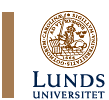

|
Panel No. 42Panel Title: Sri Lankan PoliticsConvenor: Alan Bullion, Research Associate, Open University, UK Friday 9 July, 8–12 Panel Abstract: The focus of the panel will be the current Sri Lankan peace process, conflict resolution, prospects for deeper democratization and federal solutions.
Papers accepted for presentation in the panel:Paper Giver 1: Laura Watkins, Dept. of Politics, University of York, UK Paper 1 Title: Capturing Capacities: An Examination of Empowerment and Development Among Muslim Women IDPs in Puttalam District, Sri Lanka Paper Abstract: This paper focuses on the power structures that determine the activities of a women’s Community-Based Organisation (CBO) and its members. The CBO in question, the Women’s Organisation for Development, Equality, Peace and Temperance (WODEPT), comprises primarily of displaced Muslim women and works within Puttalam District north-west Sri Lanka. Based on the assumption that empowerment is essential to effective micro-development, it is argued that gender is a defining factor within this relationship. In particular, the research seeks to prove that the extent of capacities and empowerment of individual CBO members determines the organisational development of WODEPT. Following on from an overview of the case study and methodology, the paper centres on the main findings based on literature and field research. These findings are structured into two parts: those concerning individual members, and those concerning WODEPT as an organisational whole. Drawing upon Luke’s third conception of power, it is concluded that despite making some economic and social gains, existing power structures and controls have prevented WODEPT members from capturing sufficient capacity to independently further their own development. Paper Giver 2: Dr. R.S. Gunatunge, Dept. of IT and Decision Science, and Prof. M.M. Karunanayake, Dept. of Geography, University of Sri Jayewardenepura, Sri Lanka Paper 2 Title: Information and Communication Technologies for Enhancing Socio-economic Development at the Local Level in Sri Lanka: Issues, Challenges and Strategies Paper Abstract: Information and communication technologies (ICT) have been growing rapidly in developed countries over the last five decades. ICT has been revolutionising the way in which people in these countries live and conduct their work. ICT has changed the administration, governance, education, business competitiveness and global operations in them. The developed countries consider ICT as much vaunted technology for increased socio-economic development and depend on the “knowledge economy” for wealth creation. In contrast to the developed countries that have been steadily capitalising on the rapid pace of ICT, a large number of developing countries, particularly low-income countries have failed in the adaptation of these technologies thus contributing to the “digital-divide” between the developed and developing countries. This is predominantly so in the rural villages in that modern technology has not reached to the institutions in rural villages. Democracy, social harmony, peace and economic growth have become political issues at the grass-root level socio-economic development. ICT can be implemented within the institutions in rural villages to improve administrative processes of local level institutions, increase transparency of activities making them accountable to the public, connect villagers to the administration and socio-economic development, increase their knowledge base through greater participation, inclusion of their voices of the development programs, resolutions of their conflicts and deliver better services to improve their socio-economic conditions. However, this can be achieved only through a democratic framework and devolution of power to local level institutions. This paper presents the issues, challenges and strategies in this regard with reference to the Kotmale Divisional Secretariat Division in hill country Sri Lanka. Full paper to be downloaded (as a pdf-file) Paper Giver 3: Dr.S.Manivasakan, Lecturer, and I. Hiller Armstrong, Research Scholar, Centre for South and Southeast Asian Studies, University of Madras, Chennai, India Paper 3 Title: Peace Efforts in Sri Lanka Then and Now Paper Abstract: India had been observing the emerging situation in Sri Lanka with great concern. Because, India in the directly affected neighbouring country due to the Sri Lankan ethnic crisis. The refugees’ problem created not only an economic burden but also in Socio-Political tensions within Tamil Nadu, and other part of India. India's involvement Sri Lankan issues which started since the outbreak of anti-Tamil violence in July 1983. The paper speaks on peace efforts in Sri Lanka, How best the India played a major role to mediate and intervened in the Sri Lankan issue through the Parthasarathy Mission, Bandari Mission, Thimpu Talks, Chidambaram Mission, Indo-Sri Lanka Peace Accord, and Karunanidhi's Mission as a first face on this paper. In continuation second face of the paper also focuses on what are all the major efforts taken by the Norwegian government in the ethnic crisis in the island. Paper Giver 4: Camilla Orjuela, PhD Candidate, Dept. of Peace and Development Research, Göteborg University, Sweden Paper 4 Title: Civil War, Civil Society. The third sector and ‘ethnic conflict’ in Sri Lanka Paper Abstract: Two decades of civil
war in Sri Lanka have affected all sections of society. Civil society
has in many regards become weakened, and social divides along ethnic
and other lines have deepened. But while a break-up of civil society
has taken place in the wake of violence and hostilities, many third
sector organisations have at the same time engaged in cross-ethnic
dialogue and advocated for an end to the war. During the Norwegian-facilitated
peace processes initiated in 2002 voices have been raised calling
for increased civil society participation.
SASNET - Swedish South Asian Studies Network/Lund
University
|

